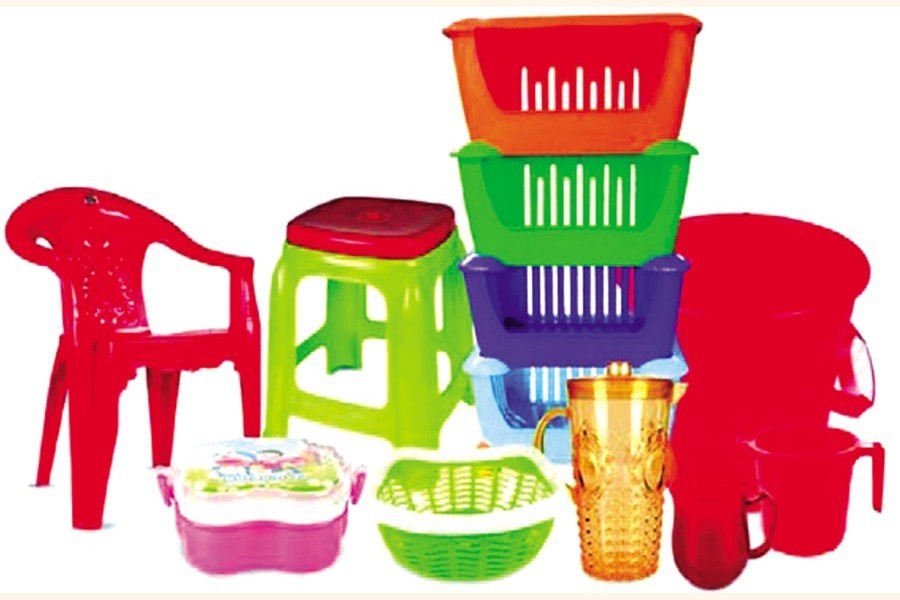Much has been talked about export diversification and how Bangladesh needs to move away from being dependent on one sector (apparels), which brings in about 80 per cent of export earnings. Although ship building and pharmaceuticals are coming of age and have garnered international attention, plastic goods have been steadily emerging as a potential contributor to the country's export earnings. Official data from EPB (Export Promotion Bureau) states that proceeds from the export of plastic goods over the July-December period was USD100.17 million, which is 30 per cent higher than that of the corresponding period of the previous financial year (FY). BPGMEA (Bangladesh Plastic Goods Manufacturers and Exporters Association), the representative body of plastic producers has set a target to boost its share of exports in the global market tenfold from the current 0.3 per cent to 3.0 per cent by 2030. In dollar terms, it would mean export earnings (at the current global market size of USD570 billion) would hit more than USD15 billion per annum. BPGMEA expects exports to cross $200 million in FY2023, a 100 per cent increase over FY2022.
Grappling with uncertainty in inward remittance, the best way to offset this predicament is to increase export. Plastic goods serve both the domestic and now increasingly, the export market. When one takes into account that the global market for plastic goods is increasing at a rate of 20 per cent per annum, surely policymakers will appreciate the importance of this sector. Despite the economic downturn globally, sale of plastic goods has remained not only stable, but is expanding at about 20 per cent annually.
While the inclusion of another product in the export basket during this time of uncertainty is a piece of good news for the nation, it is impossible to ignore the problem of plastic pollution. Plastic goods are much more difficult to dispose of and are generally not biodegradable. There is increasing evidence that this artificial product is becoming a major source of pollution. Landfills are overflowing with plastic products and our river systems are now home to micro-plastics that eventually make their way into the food chain. An environmental and public health problem that has not been addressed as yet.
Given this backdrop, there is need of a plastic industry policy, which is now in the formulation stage. However, its formulation must bring together various stakeholders from both within and outside the government. There are many policies that are supposed to govern what industry can or cannot do. But enforcement of the same has been a major problem. These are matters that need to be looked into seriously because the nation is now on track to become a middle-income country in the coming decade. It is time to do whatever necessary so that the country has an internationally-compliant plastic goods industry that will produce and export to earn the much-needed foreign exchange.


